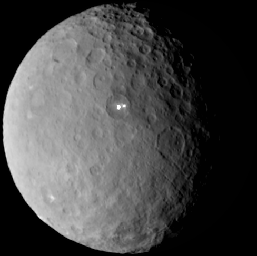MrMarcello
In a well-ordered universe...
http://www.technewsworld.com/story/81557.html?rss=1
Kepler-438b and 442b: Are These the Planets We're Looking For?
Still, "Kepler-438b is the closest to Earth we've seen considering those things," Caldwell said.
Scientifically, however, "the important result is not just that we're getting planets that are closing in on an Earth twin, but that we're finding a range of planets out there and filling in a neighborhood of things like Earth," he pointed out. "We're starting to understand more about the population of planets that could possibly be habitable."
Kepler-438b and 442b: Are These the Planets We're Looking For?
Still, "Kepler-438b is the closest to Earth we've seen considering those things," Caldwell said.
Scientifically, however, "the important result is not just that we're getting planets that are closing in on an Earth twin, but that we're finding a range of planets out there and filling in a neighborhood of things like Earth," he pointed out. "We're starting to understand more about the population of planets that could possibly be habitable."




